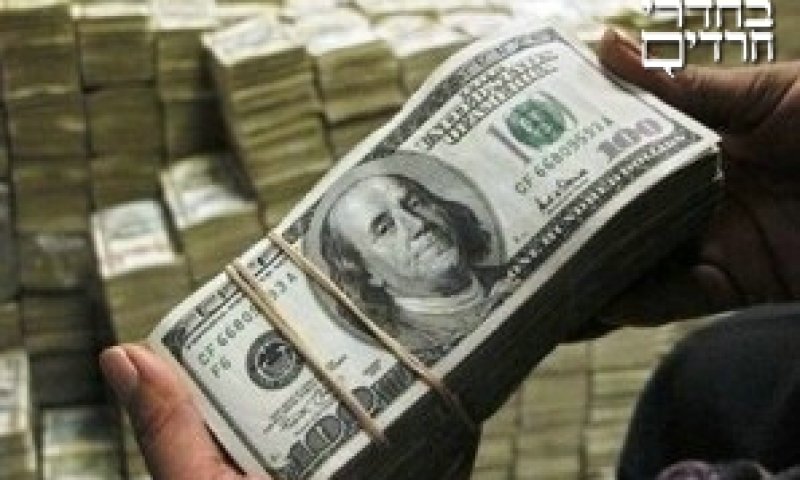
Vizhnitz Dayan ruled: "Rothschild exempt from payment"
Vizhnitz issued a file of 'Binat Hamishpat' - questions sent via email and post to dayanim of the chassidus • Among the questions: What is the law of Rothschild, credit memos, and sharing in parking ticket
- Shlomo Greenberg, Behadrey Haredim
- ג' סיון התשע"ג

In the Vizhnitz community, there is an answering service regarding financial matters by mail or email.
A file containing detailed answers to questions has recently been issued. In the last file, called 'Binat Hamishpat', we find a variety of interesting questions, many of which relate to everyday life as well as fascinating reference to a financial affair that occurred in the past.
Let us begin with the latter: R' Chaim Gross hy"d, a wealthy German Jew from before the war, deposited in Rothschild Bank about twenty million dollars. When he noticed that the situation in Germany is difficult, he brought his son Moshe his documents. R' Chaim was killed but his son survived.
R' Moshe sued the heirs of the Rothschild family, to regain his father's money. According to him, although the Germans confiscated the assets of the Bank, the bank owners bequeathed to their heirs many assets of lands, and there was a lien on the property. But the heirs claimed that the money was deposited in a bank which was a limited company without personal liability.
Harav Hagaon Rabbi Yitzchak Baruch Daskal, stated that "One should dismiss the owners of the company, since the Rothschild family did not misuse the assets, but were persecuted by the Nazis, and R' Haim who deposited the money in a limited company, can not sue the private property of the bank owners."
Who got fined?
He was further asked: "I found a store credit on the street, with no sign of whom it belongs to. Although it is known that an aveida with no sign, its owners are discouraged of it and it belongs to its finder, however I doubted if one should be concerned of "yeush shelo mida'as" in case the looser did not know that he lost it?"
The answer was to be meikel (lenient):
"Everything which is important, a person is used to check if he has it in his pocket, therefore it is simple that gift certificates are not less important than money, and a person is used to feel for them, therefore they are yours."
Hence another question:
"Reuven brought his car to the carwash. The owner offered him to park on the other side of the street - although parking there is forbidden - and in a few minutes, he will move the vehicle to the permitted place. Reuven did so, and gave his keys. Having come to collect the car, he saw on the car window a report with a fine of hundreds of shekels for illegal parking. Should the company compensate him for the fine?
The answer is surprising:
"In the given case, that he gave the company the keys, for the custom of traders is that from the time the mechanic got the car to repair, he has accepted full responsibility for it, therefore they have to have to pay him full damages for the parking ticket."
תגובות
{{ comment.number }}.
הגב לתגובה זו
{{ comment.date_parsed }}
{{ comment.num_likes }}
{{ comment.num_dislikes }}
{{ reply.date_parsed }}
{{ reply.num_likes }}
{{ reply.num_dislikes }}



הוספת תגובה
לכתבה זו טרם התפרסמו תגובות